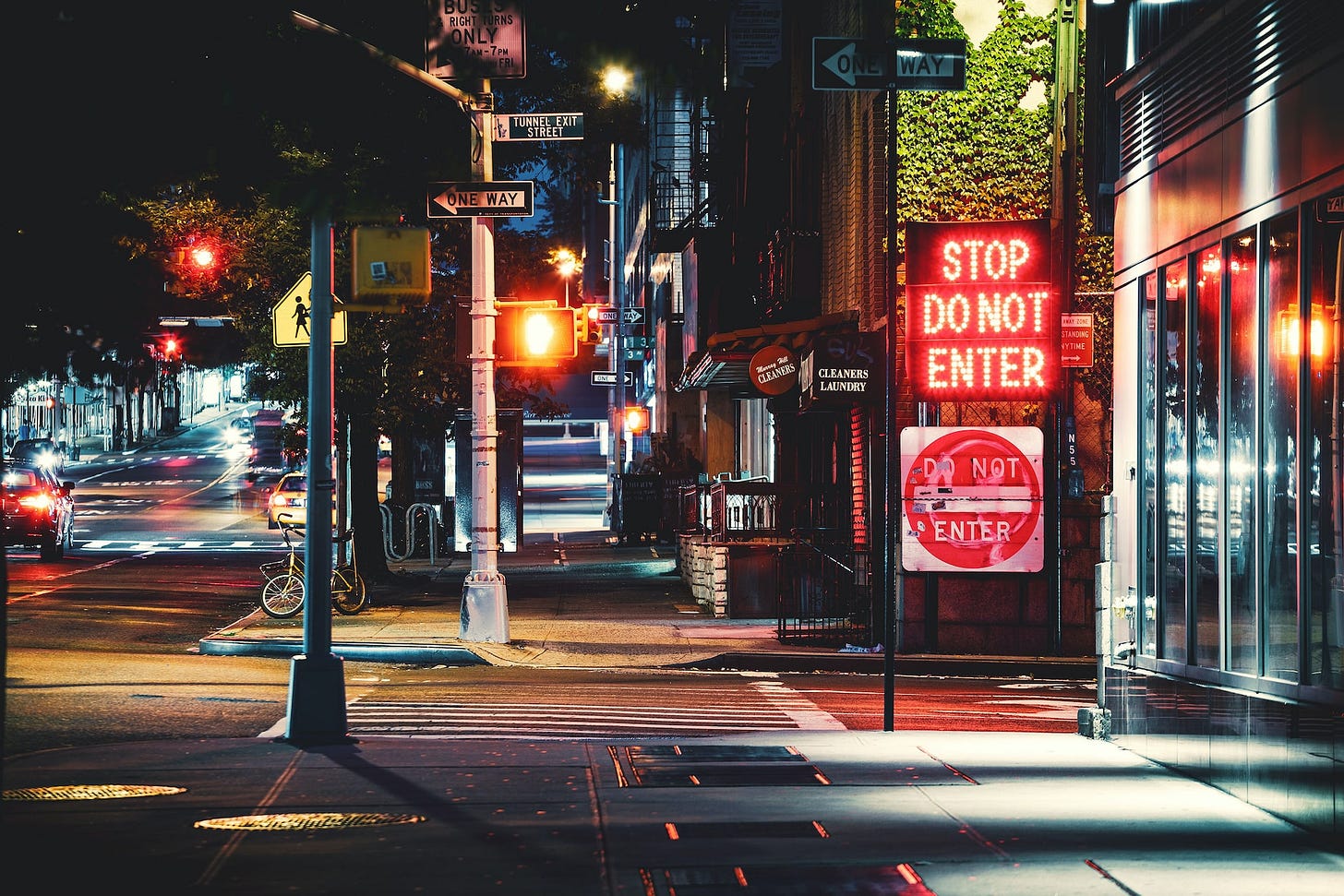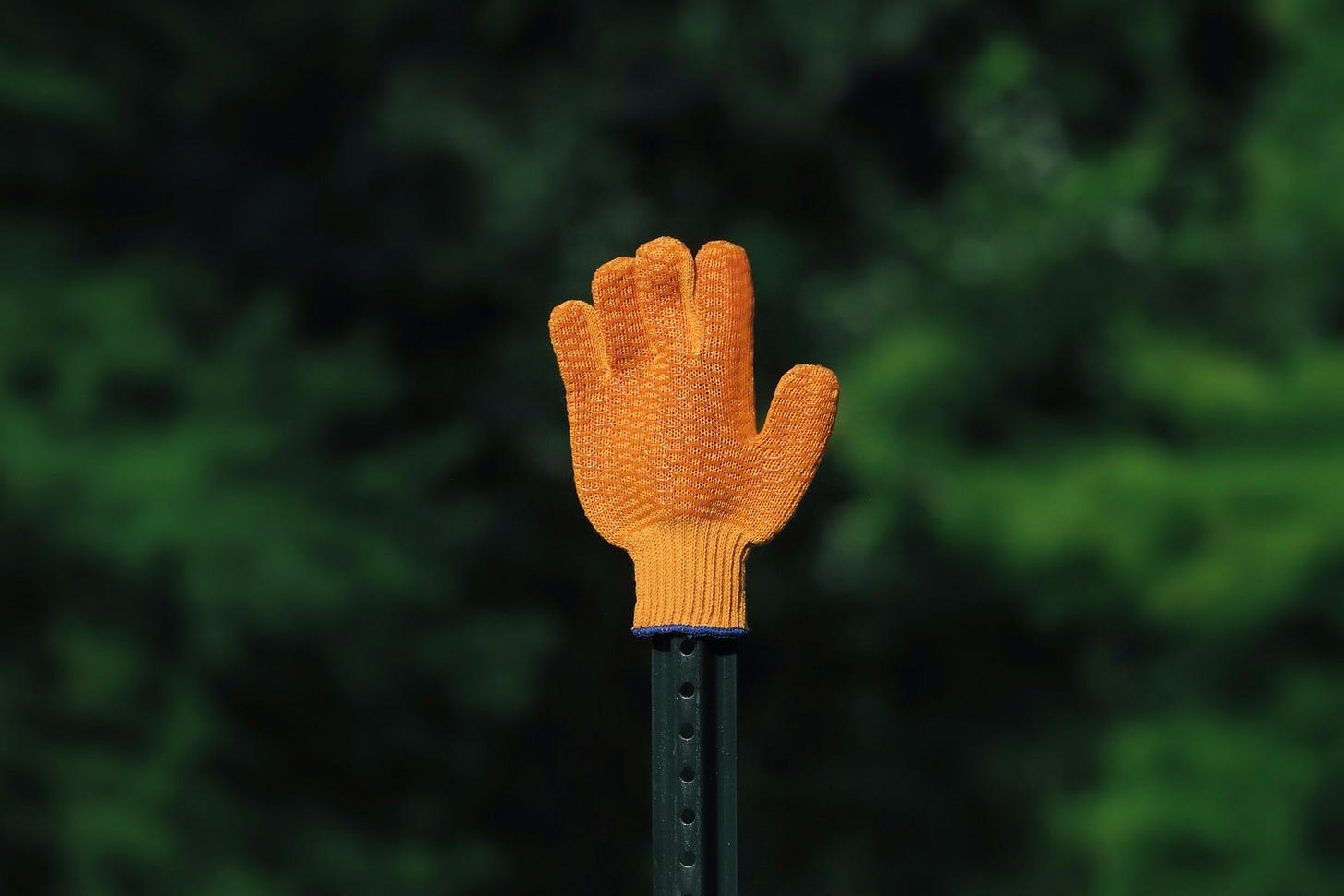Unhelpful Life Advice
Why I won’t be telling you to meditate, find an accountability partner, or hire a virtual assistant.
Does the Year of Mental Health mean “sharing a story” or “offering guided advice”? Readers, it means both. But before I offer any advice—which you should always take or leave as you see fit, of course—let’s go over some advice I won’t be giving you. 🤝
As we begin this yearlong project, I thought I’d make you a list of promises. For example, I promise to be consistent in writing throughout the year. If you subscribe, you can count on me to see it through. (Etc. etc.)
But even though that’s true—you can count on it—it might not be the most important promise I can make you.
More than just showing up three times a week, I’m going to do my best to always be honest, and to challenge conventional wisdom.
This is because I want to make sure this series is as helpful as possible to you.
What do I mean? First, it means avoiding generic or boring advice. Most of us would agree that it’s good to take breaks and go for walks, for example. But is it really going to change your life to read a post that says “Hey, you should take a break”?
Friends, we can do better.
So in these early days, please allow me to share a brief list of some advice I’ve received and tried to follow, all to only end up more discouraged than I was before.
In other words, this advice is NOT the answer.
“To focus on important work, avoid distractions.”
I mean … sure. But how’s that going for you?
In case you haven’t noticed, everyone is distracted, all the time. The modern world CONSISTS of one distraction after another.
We can (and probably should) work to eliminate as many distractions as possible. It will help somewhat. But it’s hardly the answer to feeling overwhelmed and purposeless. And if you feel anxious, you’ll be anxious with or without all the distractions of modern life.
“To be more productive, get up one hour early and work harder.”
Here’s a weird thing: sleep is good for you. Sleep deprivation is not a sustainable strategy for anything except anxiety.
Also, what if you’re already getting up early—are you supposed to get up even earlier? Stay up later? There are only so many hours in a day, and they aren’t exactly making more of them.
(Another weird thing: Once you finish something, there’s always another thing waiting. The cycle of just work harder will always fail.)
“Hire a virtual assistant and start outsourcing your unwanted tasks.”
What, so now you have someone else to manage and worry about? Let’s not go there.
Feeling overwhelmed goes far beyond your unwanted tasks—it also includes the many, different, conflicting things you want to do but struggle to fit in.
I’ve done a lot of work on optimizing my life, to the point where I don’t have many “unwanted tasks” left. If I don’t want to do something … most of the time, I just don’t do it.
I haven’t had voicemail for years. My email inbox is a mess, but I declare email bankruptcy every January and start over. 🤷🏼♂️
Again, for those of us with access to a certain amount of free time—a description that likely includes every person reading this post—the greater challenge is everything else we want to do.
We are constantly choosing, and the choosing is hard.
“Minimalism is the answer; simplify your life and do less.”
A while back I wrote a post about how “More is not the answer to too much.” It’s odd how when we feel overwhelmed, we think that adding something new (a tool, system, hack, routine…) will solve the problem.
Surprise: it doesn’t! More is not the answer but … neither is less.
At least not on its own. Instead, we all want to do more of some things and less of others. Minimalism can be a surprisingly difficult (not to mention expensive) habit to follow, and you might not end up any better off because of it.
“Learning to meditate will make everything better.”
Meditation works for some people and not others. In fact, for some people, meditation is not only unhelpful, it’s actually harmful. No kidding!1
I’ll say more about this later, because it’s very confusing to those who think that learning to meditate will solve every problem in the world.
“Find an accountability partner to stay on track.”
Outside accountability is helpful to some people. But you know where this is going, right? For others, it’s unhelpful. The presence of outside parties creates unnecessary pressure, and can lead to feeling guilty if you don’t follow-through perfectly.
And that’s the thing: a lot of what’s wrong with productivity advice, as well as “the conversation” around mental health and wellbeing, is the constant assumption that what works for some, works for all.
This is especially true for those with mental health conditions. If you think differently, you need different solutions!
When it comes to wellbeing, one size definitely doesn’t fit all. You need to figure out what works for you.
This list of unhelpful life advice is abridged. There’s plenty of bad advice out there, after all. 😉
I’ll do my best to keep these things in mind as we go.
To recap where we’re headed: first, this series will be published consistently. You can count on new posts every Monday, Wednesday, and Friday at 7am. If I don’t show up, send a life raft.
Second, I’ll be honest with you. We’re going to get real, and that involves personal stories with strong opinions.
Third, I’ll do my best to be helpful—which means that much of what you’ll read will be different from what you’ve heard elsewhere.
Oh, and last but not least—I think it will also be fun.
Are you in? Let me know!
Conversation Starters (Choose any or none)
What’s the worst advice you’ve ever received?
Why is so much productivity and “work better” advice so unhelpful?
What’s one thing that’s been helpful to you?
Pros and cons of rewatching The Office.
Like I said, more to come on this topic. But if you’re interested now, start with this long article: https://harpers.org/archive/2021/04/lost-in-thought-psychological-risks-of-meditation








What's been helpful: not tracking my steps and focusing on enjoying my walks for their own sake. In fact, I don't track anything anymore. I just DO things--lift weights a couple times a week, amble around the neighborhood, go to yoga on Tuesdays, eat veggies for most of my meals (because I like them), and read all the books I want. I used to set goals, but it really took the fun out of life. I figured it's healthier to just do the things I know are good for me as a matter of course and not always be setting the bar higher and higher. As someone with a chronic condition that's sometimes unpredictable, it was also discouraging when I had weeks where things didn't go the way I expected. Now every time I get a walk in or have a delicious meal, I feel so grateful. :)
What has actually worked was giving up "productive" mornings. I am naturally a morning person and have long tried to be that early riser who mediated, wrote, and hit the gym before my 9-to-5. But I stopped. Great sleep is more important. Checking in with myself with no agenda or timeline is more important. Gently waking and easing into my day results in an overall quieter pace and reduction in anxiety. It took me a long time to realize that I didn't owe the most vibrant part of my day to to a job. I took it back as mine. Good for the CEO who gets a day's worth of tasks checked off before 7 am, but, for me, the quiet, reclaiming of my morning results in a day I enjoy.